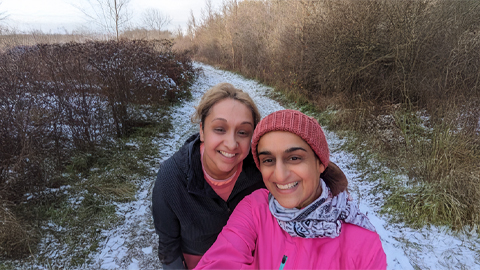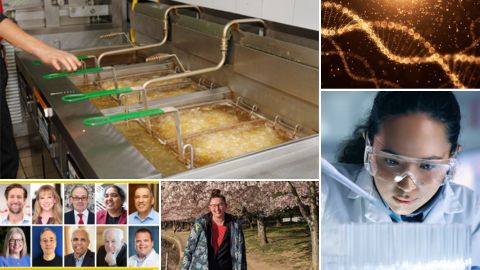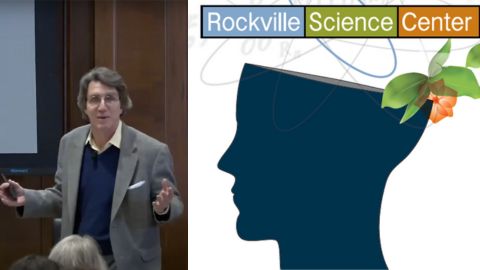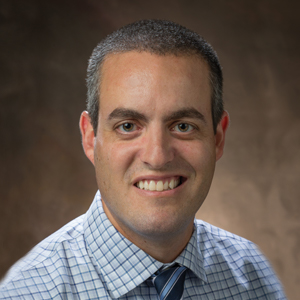Navigating the murky waters of social media
Working in a profession where success hinges on securing the next grant or publishing the next big paper, scientists are exceptionally trained to distill complexity into simpler elements. Grant writing may be a scientist’s ultimate test in communicating via efficient and effective prose. Twitter is essentially an extreme exercise in efficient and effective writing, albeit with decidedly lower stakes than grant writing and significantly lower odds of getting money for your lab.

So why join the world of social media?
I would argue that never before has the distribution of information been more democratic. Information comes easily to you; communicating your science to a large audience happens incredibly quickly.
I use Twitter to find new papers and new science without having to scour a plethora of journal sites. While not all scientific articles are posted to Twitter, by following a diverse group of scientists on Twitter, I can capitalize on a community of scientists to curate cutting-edge developments and current literature and more quickly identify the most exciting new developments.
Another strong advantage is advocacy. Connecting more scientists to the political process that determines funding levels for the National Institutes of Health and National Science Foundation is a priority for me. I view communicating the importance of biomedical research to our elected officials and the lay public as absolutely necessary. My commitment to advocating for increased and sustained funding for biomedical research is why I joined the American Society for Biochemistry and Molecular Biology’s Public Affairs Advisory Committee. I use Twitter as a platform to communicate the significance of biomedical research in both societal and economic terms and to raise awareness for developments in funding. You may share these same concerns and likely have others that you are committed to advancing.
I encourage junior and established scientists alike to join social media to broaden the scope of science they see and to engage with other scientists and the public. Similar to starting a new experiment, a scientist looking to get a start in social media should take stock of some points.
Which platform?
With the plethora of choices available for social media platforms, choosing the best platform can be daunting for those starting out. Twitter, Facebook and LinkedIn are the most widely used social media platforms for scientists.
Twitter is my social media platform of choice. But no matter the platform, on social media, everything is or has the potential to be public. You must consider this point when starting out and posting. As a faculty member, separating my private and professional lives is important. On Twitter, I have separate accounts, one for my personal life and the other for my professional life. LinkedIn is a great tool for networking and is professionally focused, though it tends to be highly compartmentalized into discussion groups for specific subfields, prone to spam, and largely populated by job seekers. Although Facebook is the most popular social media platform in the world, it can be difficult to keep your professional and personal lives separate, although you can, as on Twitter, hold separate accounts for the different parts of your life.
I find Twitter to be natively customizable, easy to learn and great for rapid communication. However, having a quick and easy vehicle for communication does not always mean it is simple to get your message out effectively.
Easy to use, not necessarily easy to do
Consuming information shared by others on Twitter couldn’t be simpler. All you have to do is hit the “follow” button on people, organizations and groups that interest you.
Posting your own tweets and making sure they are seen is easier said than done. Writing a tweet that others will not just see but also share (retweet) takes practice. An overarching goal to keep in mind when writing your first tweets is to spark interest. You want your tweet to be succinct yet engage the reader’s attention. Think as if you’re writing a manuscript title, not an abstract. Try to spur the reader into wanting to learn more about your subject. One of the best ways to do this is to be yourself; don’t try to be an automaton tweeting science 24/7. Inject your thoughts and personality into your tweets and share what you think is interesting and compelling. You also want to make sure that any links you put in your tweet are functional. There is little more frustrating on Twitter than finding an interesting tweet and discovering it features a dead link. It also can be helpful to stick to a theme or a set of themes so that you can become known as a valuable source of information in your area of interest.
The cost of social media
Social media is free, right? Try again. Our colleagues in economics are right: There is no such thing as a free lunch. Everything has costs; even doing a free activity has real costs in that you are choosing to do that activity over something else. For those of us in science, the real cost of spending time on social media is acknowledged infrequently. Particularly for junior scientists, the real price of your time scarcely is mentioned.
As a faculty member with demands for my time coming from many angles and the need to pay for salaries in my lab from grants, the real cost of time is more readily apparent. A key consideration for capitalizing on your social media efforts is to compartmentalize or actively track your time. Twitter can be an efficient mechanism for finding the latest science and promoting your own. But without good time management, you’ll find that efficiency quickly devolves into several hours gone with little to show.
Why I enjoy being on Twitter
Whatever your priority, getting onto social media as a scientist provides you with a platform that our predecessors never had. Staying up to date is quick and easy. I can get the information I need whether I’m at my desk or 2,000 miles away. Countless tweets have sparked inspiration for current and future projects in my lab. Tweets have prompted me to incorporate graphic-design principles into figures and presentations and introduced me to exciting new approaches in biochemistry and biophysics. Twitter also provides me with the opportunity to share information about the science, missions and principles about which I am passionate. I encourage all scientists to take advantage of this opportunity for advocacy, to find your topic, to speak your mind and to become a champion for your cause.
Enjoy reading ASBMB Today?
Become a member to receive the print edition four times a year and the digital edition weekly.
Learn moreFeatured jobs
from the ASBMB career center
Get the latest from ASBMB Today
Enter your email address, and we’ll send you a weekly email with recent articles, interviews and more.
Latest in Opinions
Opinions highlights or most popular articles

Guiding my sister through cancer
A scientist learns that sometimes communicating all the data and research needs to take a backseat.

Our top 10 articles of 2024
ASBMB Today posted more than 400 original articles this year. The ones that were most read covered research, society news, policy, mental health, careers and more.

From curiosity to conversation: My first science café
“Why was I so nervous? I’d spoken in hundreds of seminars and classes, in front of large audiences.” But this was the first time Ed Eisenstein was explaining his research “to a crowd of nonscientists relaxing over food and drink at a local tavern.”

‘One word or less’
For a long time, Howard Steinman thought this phrase was a joke: “Less than one word is no words, and you can't answer a question without words.”

Can we make grad school more welcoming for all?
The students and faculty at most of the institutions training the next generation of STEM professionals do not reflect the country’s diversifying demographics, leaving a gap in experience and cultural understanding.

I am not a fake. I am authentically me
Camellia Moses Okpodu explains why she believes the term “imposter syndrome” is inaccurate and should be replaced.

